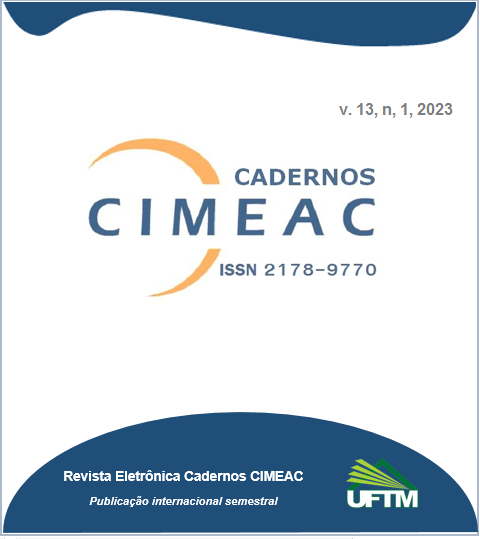A importância da educação ambiental no processo de formação docente em um curso de licenciatura em educação do campo
DOI:
https://doi.org/10.18554/cimeac.v13i1.6841Resumo
Este artigo é um recorte de uma pesquisa de doutorado, na qual objetivamos compreender a formação do professor da Educação do Campo no que tange à Educação Ambiental. A pesquisa tem abordagem qualitativa e utilizou-se de diferentes instrumentos de coleta de dados, como: entrevista como a professora do curso de Licenciatura em Educação do Campo (LEdoC) UFG/ Câmpus Goiás, questionário exploratório para os alunos do curso, gravações das aulas síncronas e do grupo focal, e as atividades dos alunos durante as aulas assíncronas no Tempo Comunidade. A partir dos resultados obtidos, concluiu-se que a EA presente na LEdoC pode contribuir para a formação do professor de Ciências da Natureza, bem como do educador ambiental, possibilitando a construção de uma consciência crítica frente aos problemas socioambientais presentes no campo.
Downloads
Publicado
Edição
Seção
Licença
Os autores que publicam nesta revista concordam com os seguintes termos:
(a) Não cobramos dos autores para a publicação neste periódico.
(b) Autores mantém os direitos autorais e concedem à revista o direito de primeira publicação, com o trabalho simultaneamente licenciado sob a Licença Creative Commons que permite o compartilhamento do trabalho com reconhecimento da autoria e publicação inicial nesta revista.
(c) Autores têm permissão e são estimulados a difundir e a distribuir a versão publicada de seu trabalho online (ex.: em repositórios institucionais ou na sua página pessoal) após o processo editorial, já que isso pode aumentar o impacto e a citação do trabalho publicado (Veja O Efeito do Acesso Livre).
* * *
AUTHORS COPYRIGHT AND PUBLISHING RIGHTS
Authors who publish with this journal agree to the following terms:
(a) This journal does not charge authors for publication.
(b) Authors retain copyright and grant the journal right of first publication with the work simultaneously licensed under a Creative Commons Attribution License that allows others to share the work with an acknowledgement of the work's authorship and initial publication in this journal.
(c) For authors whose articles have been accepted: authors are permitted and encouraged to post their work online (e.g., in institutional repositories or on their website) after the publication of the text in Cadernos CIMEAC, as it can lead to productive exchanges as well as earlier and greater citation of published work (See The Effect of Open Access).

 10.18554/cimeac
10.18554/cimeac

